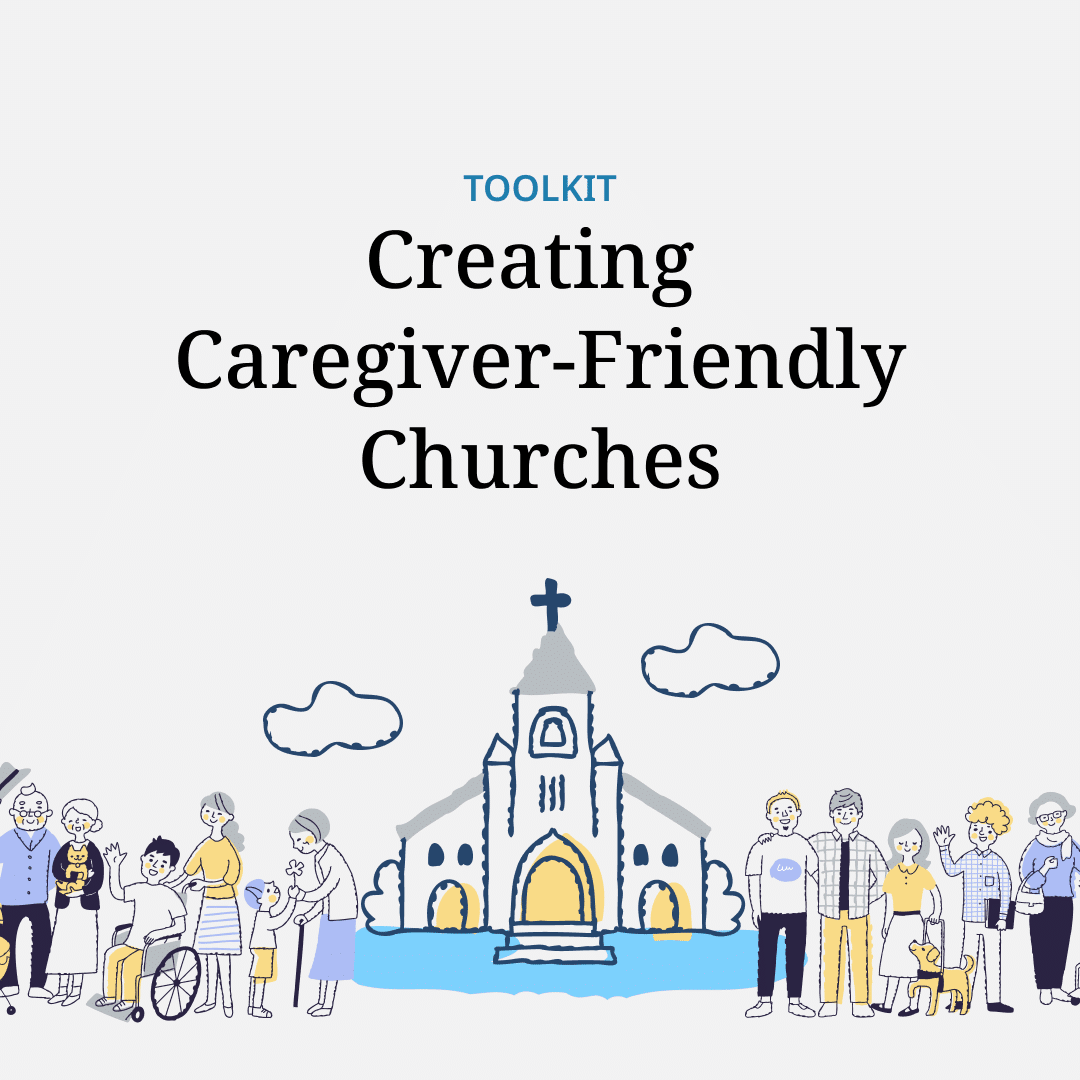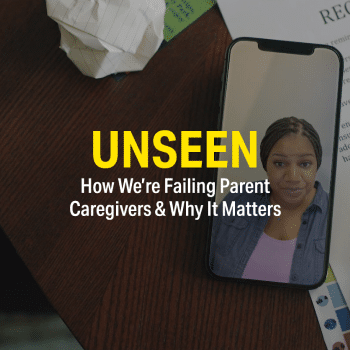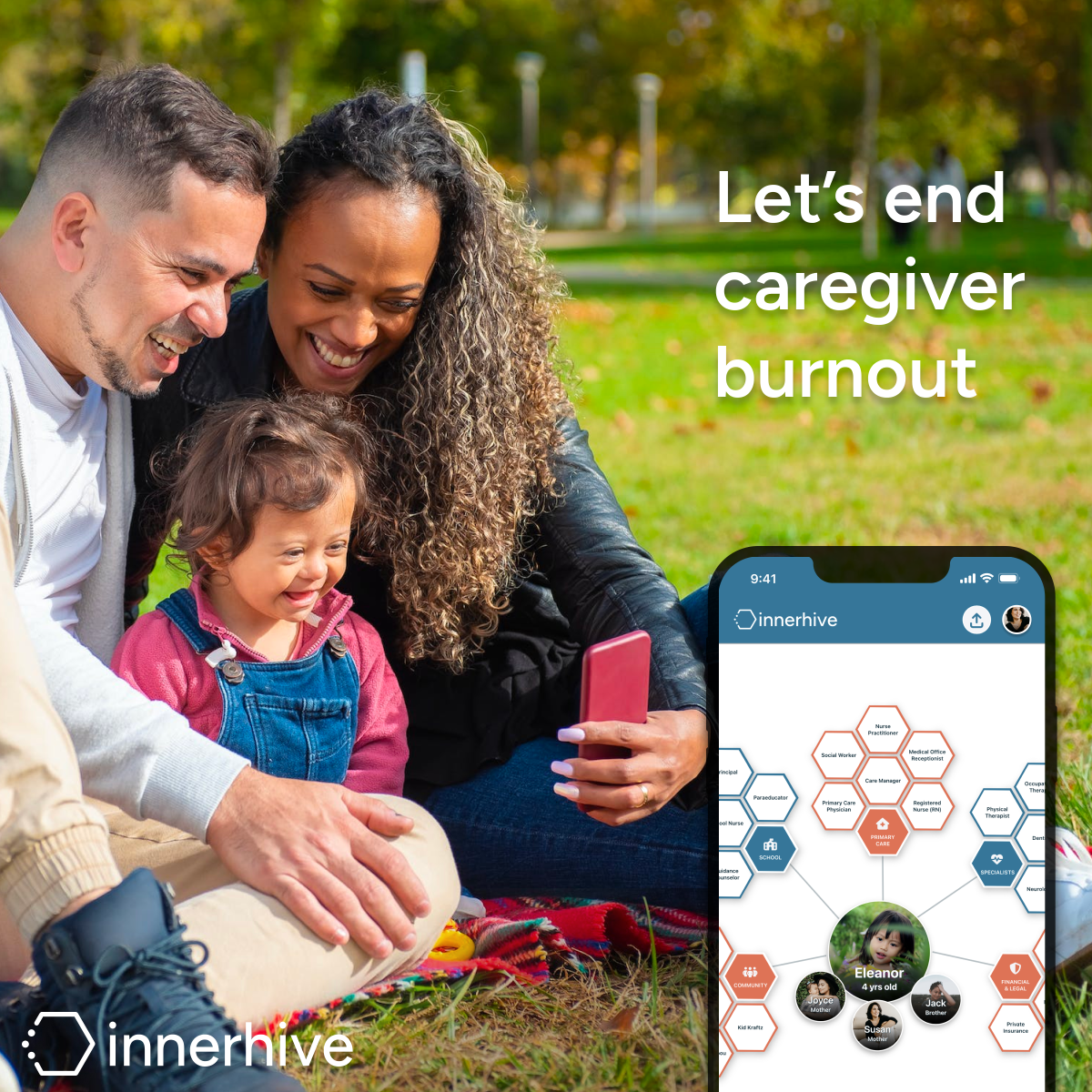
Explore the Caregiver-Friendly Faith Communities Toolkit
Learn how faith communities can support caregivers by fostering a culture of care, accessibility, and practical assistance.
Caregiver-Friendly Faith Communities Toolkit
Presented by
For caregivers, having a strong support network is essential to surviving and thriving. Many caregivers report feeling isolated and lonely, and as many as 40-70% experience symptoms of depression.
Churches and faith communities can help by offering important spiritual support, a sense of community, and tangible support that many caregivers may not have access to elsewhere.
Because caregivers face unique, sometimes invisible challenges, it can be difficult to know where to start when building a caregiver-friendly organization. Yet all it takes is a little bit of time, dedication, and learning to ask the right questions. Start with these five questions to guide your journey to becoming a faith community that supports caregivers.
If you don’t know who your caregivers are, it will be awfully difficult to support them. Therefore, your first step is to identify the caregivers in your community. Your approach may vary depending on the size of your congregation or group and what types of programming you offer. Here are some ideas:
Remember, caregivers may not consider themselves to be a caregiver! They might see caregiving as something they do rather than who they are. However, they might reveal that they help care for an aging parent or that they have a child with disabilities or a friend with a serious illness, etc. These are all caregivers! Even if a person doesn’t label themselves a caregiver, they can still benefit from strong community and support.
Once you recognize your caregivers, ask them about their specific situation and needs.
Use their responses to guide you efforts!
Becoming familiar with the resources available for caregivers and disabled individuals in your area will inform your efforts in several ways:
Starting and maintaining a database of local and state resources can be extremely valuable to a caregiver. They often face a to-do list of endless tasks, and helping a caregiver cross this one off the list can be immensely helpful.
Be sure to include Innerhive, an app designed to help end caregiver burnout by centralizing and simplifying care management.
Experienced caregivers might already be familiar with many of the local, state, and national resources that are dedicated to caregivers and their dependents. Find out what organizations your caregivers are already connected to and offer to support them as a church.
Improving accessibility is as much about creating a physical space as it is meeting the varied needs of the people who attend your services and events.
It’s incredibly important that your facility physically accommodate people with disabilities (even if you’re not legally mandated to meet ADA requirements). This is includes everything from wheelchair ramps, widened door frames and elevators, to accessible parking and bathrooms.
Going beyond the basic requirements, would it be possible for someone in a wheelchair to access your stage or altar? Ensuring disabled people have access to all areas sends a strong message that they are welcome and valued.
Don’t forget about universal changing tables in bathrooms, which accommodate everyone who need assistance with personal care. These tables are critical for many families to be able to participate in activities.
Serving the disabled population and their caregivers goes beyond just accessibility of a building. It’s also about creating a safe space for children and adults with a variety of needs. Be willing to have deep conversations about the unique needs of disabled individuals, and consider ways your community can meet them.
A truly disability-friendly and caregiver-friendly church is so much more than a wheelchair ramp! Learn more about accessibility at church here.
Caregivers themselves should not be expected to spearhead the movement to make your faith community more caregiver-friendly. They are extremely busy doing the work of caregiving. Rather, it takes committed staff and/or volunteers who are willing to create the supportive community that caregivers and their dependents need.
Here are ways you can get started:

Learn how faith communities can support caregivers by fostering a culture of care, accessibility, and practical assistance.

The “Unseen” documentary gives an unfiltered, honest glimpse into the lives of caregivers and their families.

Spreading Sunshine brings joy to families impacted by childhood illness by sending care packages to children and providing support to the entire family.

Designed for families and care teams, the Innerhive app serves as a central hub of caregiving tools, resources, and community.

Sign up to get notified about upcoming screenings, new bonus content releases, and get a 10% off coupon for our mech store!